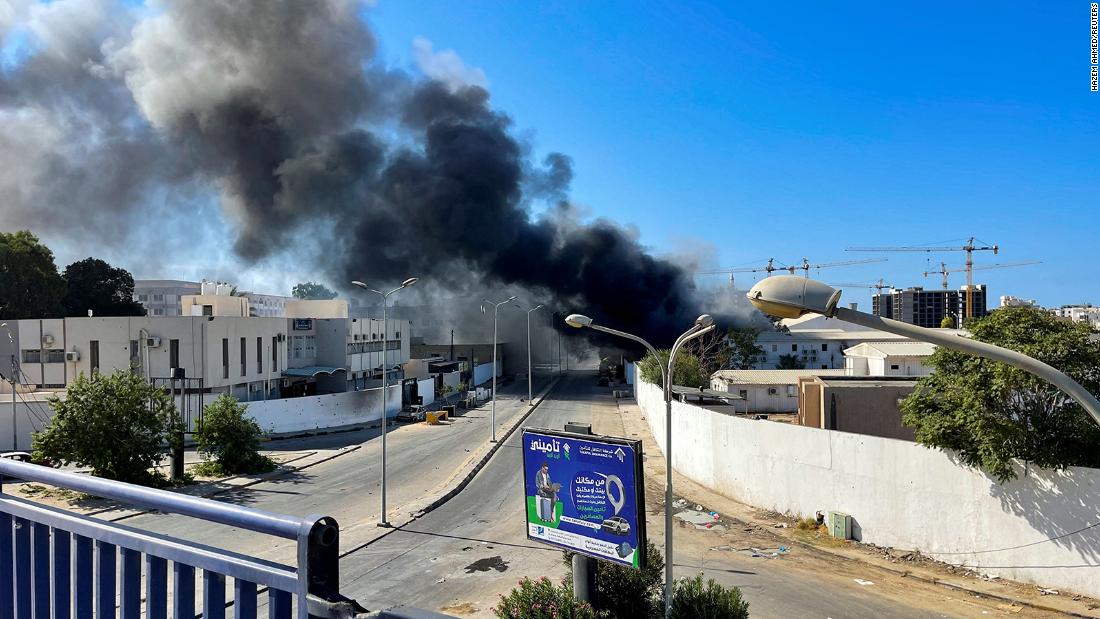Intense fighting erupted in the capital overnight as rival factions exchanged intense gunfire and several loud explosions resounded across the city. Pictures and videos circulating on social media show the extent of the clashes with dozens of buildings, including residential ones, destroyed and several cars smashed and burned.
The UN-backed Government of National Unity (GNU) said on its official Facebook page the clashes “were triggered by a military group firing randomly at a convoy passing in the Zawia Street area, while armed groups were gathering at the 27th gate west of Tripoli and the Jebs Gate south of Tripoli.”
The country’s interim Prime Minister Abdulhamid Dbeibeh, the head of the GNU, is based in Tripoli in the western part of Libya. The parliament building in Tobruk in the east of the country is the seat of a rival government led by Prime Minister Fathi Bashagha.
Bashagha has been trying to enter and take over Tripoli as he claims the GNU is illegal and should step aside. The GNU has refused and claimed power should be handed peacefully through elections, not force.
The municipality of Tripoli held both the UN-recognized Government of National Accord and the Libyan National Army responsible for the deteriorating situation in the capital, according to Libyan News Agency LANA, the official news agency of the internationally recognized government.
It also called on the international community to protect civilians, LANA reported.
The United Nations Secretary-General Antonio Guterres on Saturday called for an “immediate cessation” to the violence.
“(The secretary-general) urges the Libyan parties to engage in a genuine dialogue to address the ongoing political impasse and not to use force to resolve their differences. He further calls on the parties to protect civilians and refrain from taking any actions that could escalate tensions and deepen divisions,” Stéphane Dujarric, spokesman for the secretary-general said.
“The United Nations remains ready to provide good offices and mediation to help Libyan actors chart a way out of the political deadlock, which is increasingly threatening Libya’s hard-won stability,” Dujarric said.
US Ambassador to Libya Richard B. Norland urged the importance of “avoiding violent clashes in Tripoli,” according to a tweet from the US Embassy in Libya.
Norland said he and Presidential Council President Menfi discussed on Friday the need for de-escalating, the embassy tweeted Saturday.
“We agreed on the urgent need to finalize a constitutional basis and move towards elections, and also on the importance of taking steps to enhance transparency and accountability in the management of Libyan oil revenues,” the tweet added.
The United Nations Support Mission in Libya said in a tweet Saturday it is “deeply concerned about ongoing armed clashes including indiscriminate medium and heavy shelling in civilian-populated neighborhoods in Tripoli, reportedly causing civilian casualties and damage to civilian facilities including hospitals.”
“The UN calls for an immediate cessation of hostilities and reminds all parties of their obligations under international human rights and humanitarian law to protect civilians and civilian objects,” the tweet added.

